Crayola started collecting children’s artworks over 40 years ago. At the time, it was one of the biggest collections of its kind in the world.
Known for inspiring creativity for more than 120 years, the company, now debuting a touching campaign called ‘Stay Creative,’ aims to ignite a new dialogue about the value of creativity and help parents integrate more creative moments into their children’s lives.
More info: Crayola
Crayola is kicking off a colorful reunion by returning 1000 artworks to the “kids” who created them 40 years ago
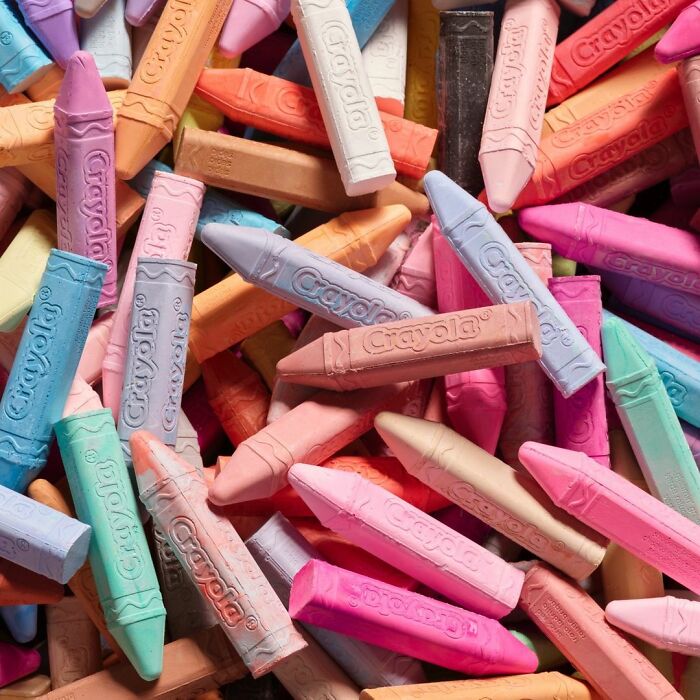
Image credits: Crayola
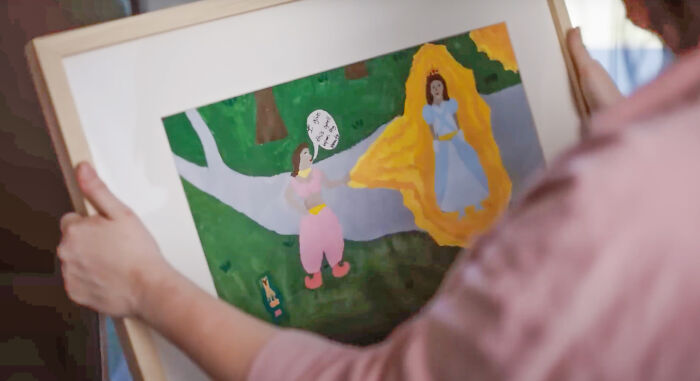
Image credits: Crayola
The iconic brand opened its archive of 1000 artworks for a very beautiful mission. After being displayed in museums and galleries across the country, now the colorful drawings will be returned to the adults who created them when they were kids decades ago.
A captivating series of short films called Stay Creative features 3 different stories about the adults who participated in Crayola’s art program as kids and now got to see their artworks again after a very long time.
Participants in the series reflect on how creativity impacted their lives and how important it is to support and nourish creativity in their own children.
“These films capture just a few of the stories we’ve encountered that bring to life the enduring value of childhood creativity. They also illustrate the pivotal role parents have in helping their children develop lifelong creative mindsets essential for whatever path they take in life,” shared Victoria Lozano, from EVP Marketing, at Crayola.
“Through the Campaign for Creativity, Crayola not only hopes to encourage and help facilitate this dialogue, but also assist in providing the right creative resources and inspiration parents need to help all children reach their full potential,” she added.
According to Crayola, creative moments at home can make a significant difference in helping children develop creativity as a critical life skill
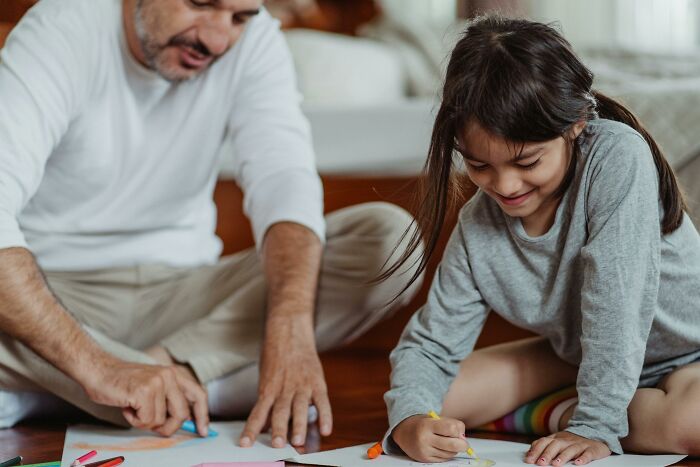
Image credits: Ketut Subiyanto
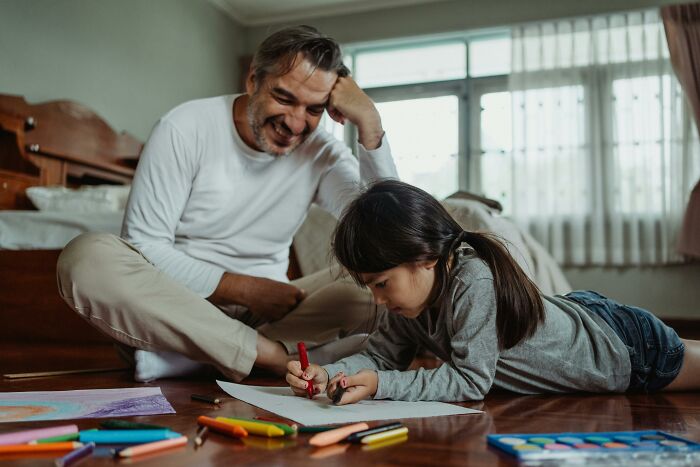
Image credits: Ketut Subiyanto
Besides the campaign, Crayola also teamed up with the Ad Council Research Institute in order to get to know better parents’ perceptions about creativity. The study analyzed knowledge, attitudes, and behaviors on creativity and how much importance parents gave to them according to importance for their children.
The research unveiled that 9 in 10 parents think of creativity as important for their child, and that encouraging children to use their imagination, explore different possibilities, and express themselves authentically is essential for their development and learning.
The study also showed that more than 60% of parents don’t think their children get enough creative activity or aren’t sure if they do. A further 29% have difficulty coming up with new creative activities and 53% of parents believe they need to be creative themselves to raise creative kids.
“We’re pleased to partner with Crayola to help study not only how parents perceive creativity but also to support their efforts to advance awareness of the long-lasting impact creative moments have on children and society,” shared Derrick Feldmann, managing director at Ad Council Research Institute. “There is a great opportunity to educate and empower them to practice it with their children,” he added.
Victoria Lozano also shared her excitement about the study’s results: “Our research showed that sparking creative moments at home can make a significant difference in helping children develop creativity as a critical life skill. We believe the value of shared creative moments between parent and child, of putting imagination into action, is an important conversation to have with parents and one that Crayola can genuinely lead.”
Crayola’s “Stay Creative” video highlights the adults seeing their art for the first time in decades
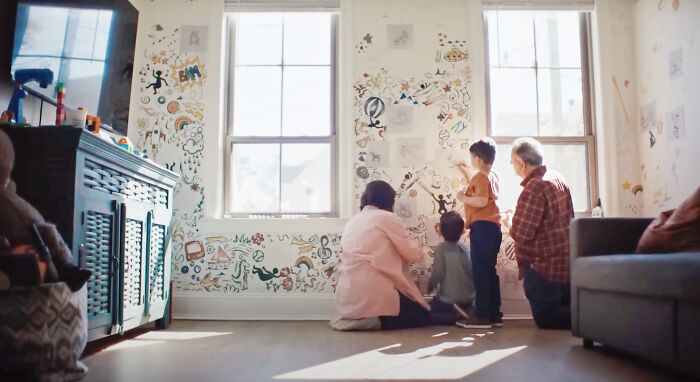
Image credits: Crayola
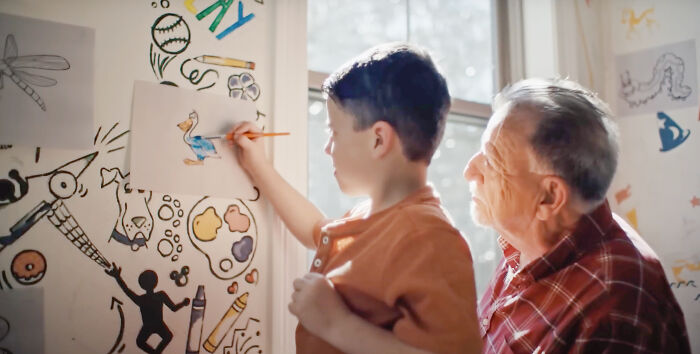
Image credits: Crayola
The company was founded as Binney & Smith Company by cousins Edwin Binney and Charles Smith in New York City in 1885. They first introduced themselves as Crayola Crayon in 1903. In addition to a broad range of colorful products, Crayola has always tried to inspire creativity through interactive experiences and engaging creative content.
For example, during their 100th anniversary in 2003, Crayola asked children from all around the country to send in their unwanted blue ‘leftolas’. 123,000 blue crayons were donated, shipped to the Easton location and then were combined to create what is currently one of the world’s largest Crayola crayons. “Why blue?” you may ask. Well, it happens to be Crayola’s most popular color.
According to Crayola, they currently manufacture 120 standard crayon colors and in 2020 introduced a new line of 24 named “Colors of the World” to reflect nearly 40 skin tones of people around the world.
Interestingly enough, in 2017, Crayola also helped to introduce a new shade of blue to the world. The company discontinued their Dandelion crayon to make room for YInMn blue – a vibrant shade that had been discovered by chemists at Oregon State University in 2009. Crayola creatively named the shade Bluetiful.
The company’s mission for all these years has been to help parents and educators raise creatively active kids. Crayola, since the very beginning, has deeply believed that when kids can colorfully express their thoughts and ideas, they can make a significant difference not only in the today’s but also in tomorrow’s world.
Crayola hopes to return 1000 pieces of art remaining in its archives from what was once one of the largest collections of children’s artworks in the world
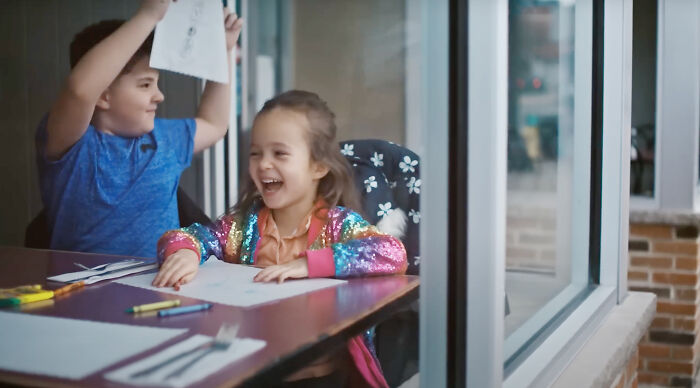
Image credits: Crayola
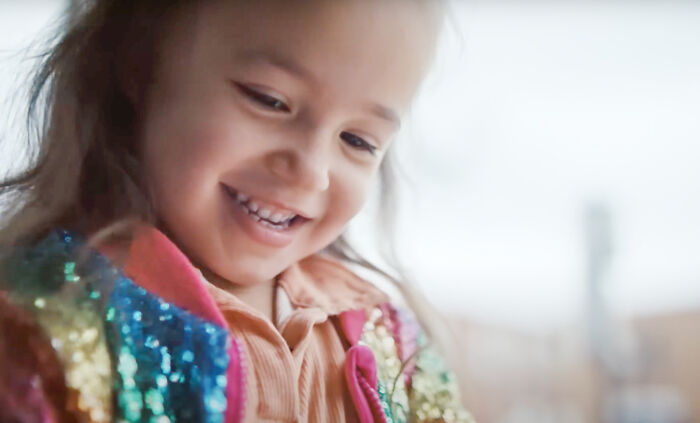
Image credits: Crayola
The artworks that once were displayed in museums and galleries across the country now are being returned to their rightful owners
Image credits: Crayola
There are theories that creativity drives human evolution, because usually we can imagine something and then make it real.
According to Agustin Fuentes, an anthropologist and professor from the University of Notre Dame, what makes us human is creativity and collaboration. Fuentes explains this concept better in his book called The Creative Spark: How Imagination Made Humans Exceptional, where he suggests that our evolution has not come from the drive to reproduce, compete for power or fight for resources, but rather our inbuilt creative drive.
Creativity is definitely among the greatest qualities people have. It opens up our minds for more innovative solutions and gives entirely different perspective to the world that surrounds us. Yet it’s something we need to exercise and perhaps Crayola has the most useful and colorful tools for that.
People on the internet were overwhelmed with Crayola’s genuine gesture




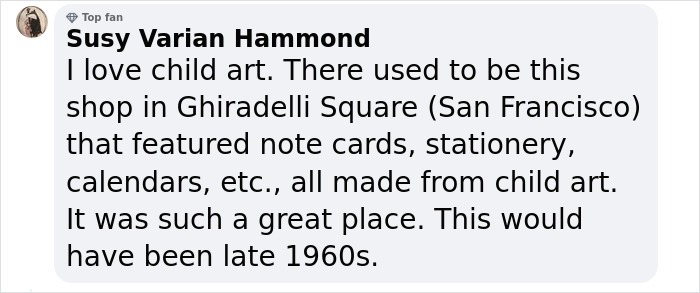














 English (US) ·
English (US) ·